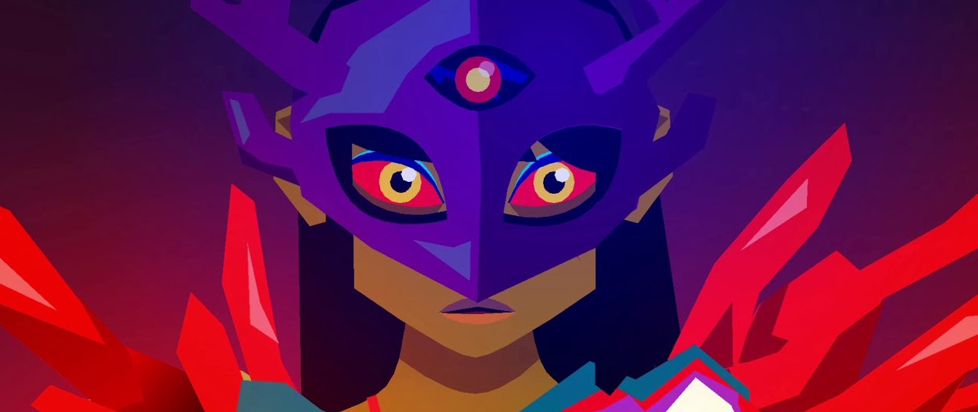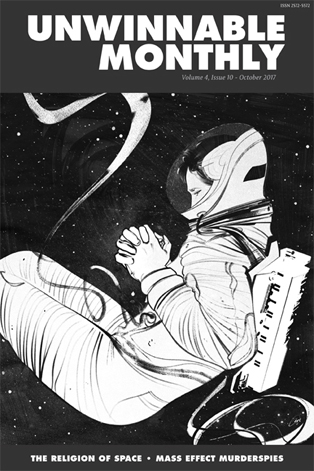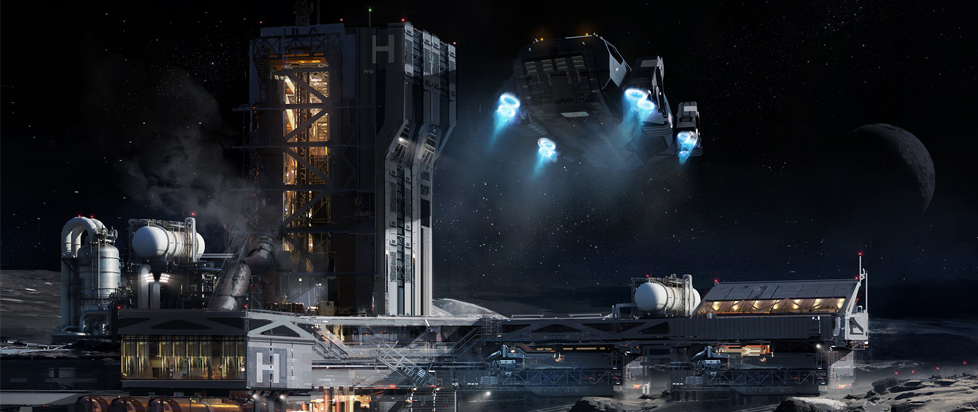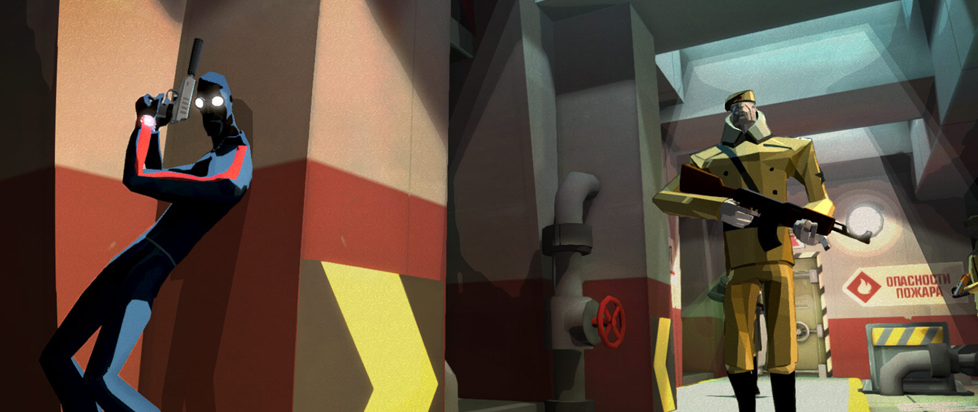
Checkpoint – The Labyrinth
 This column is a reprint from Unwinnable Monthly #96. If you like what you see, grab the magazine for less than ten dollars, or subscribe and get all future magazines for half price.
This column is a reprint from Unwinnable Monthly #96. If you like what you see, grab the magazine for less than ten dollars, or subscribe and get all future magazines for half price.
———
Corey Milne stands at the intersection of gaming and world history to see what he can see.
———
There’s a faint memory in the crevices of my mind regarding a friend’s computer, a notion from my younger days that the PC was an otherworldly piece of equipment. They had one of those low texture maze games installed. I can’t for the life of me remember what it was called. It could have been some freeware for all I know. There might have been a dinosaur in the maze, but I can neither confirm or deny the existence of labyrinth raptors. Anyway, it scared the pants off me so I left it alone.
I’ve never been one for maze games in the vein of those old dungeon crawlers like Eye of the Beholder or Dungeon Master. That was an era of gaming I missed by a large margin. Not that I didn’t try my hand at the genre. I attempted to take on the Legend of Grimrock, a modern throwback to the tile based adventures of the DOS age that sees you trying to escape a dungeon while solving puzzles, avoiding spike traps and dying and the claws of various roving bands of undead soldiers. I think Grimrock convinced me I didn’t like being lost in those claustrophobic tunnels with only 90 degrees of turning power. Then I played Severed and discovered the rigid, D&D-inspired mechanics might have done in my head.
Developed by DrinkBox Studios and released in 2016 specifically for touchscreen-based devices, Severed uses the old dungeon crawling format to great effect. The game focuses on a young girl waking up after an attack on their home. Having lost an arm and her family, they must navigate a surreal landscape and defeat its twisted denizens in order to recover what they’ve lost.
Designed specifically for a console such as the Vita or 3DS among others, the game rips your viewpoint straight from the likes of the classics I mentioned earlier. Your movement follows strict paths. In combat, you spin around in precise movements to face foes that lie outside your line of sight. Whether you’re traipsing around a decrepit crypt or lush alien jungle, you feel penned in. For someone who has lost not only physical but also emotional parts of herself, the isolation is amplified. In a dungeon crawler, those low ceilings and imposing locks on gated entryways encourage a sense of powerlessness to wash over you. Severed achieves the same effect even when it swaps the familiar grey cobblestones with lush fluorescent alien flora.
[pullquote]Each encounter with the horrors is a chance to leave more body parts strewn in your wake.[/pullquote]
The way each scene fades into existence as you take a step forward means that you’ll never be completely sure about what you’re about to stumble across. You always feel a little off balance. We all know what to expect from the standard fantasy dungeon. The more Harryhausen the skeleton warriors the better. There’s nothing familiar about the hostile land of Severed. Each encounter with the horrors is a chance to leave more body parts strewn in your wake.
The combat is frantic. Your finger makes practiced but frenzied sweeps across the screen. You plow through monstrosities by severing their limbs and using them to enhance your own powers. As your inventory starts to bulge with various arms, legs and miscellaneous bits of flesh, you start to wonder if this is still a rescue mission. With minimal dialogue, there’s a poignant story being told about exploring the spaces left behind by that which is lost. Our protagonist is trapped. Their path seemingly laid out before them. The screen only showing us what it wants us to see tempers our control as players, helping to bring our objective into focus.
Beneath Severed’s bright color palette beats a dark heart. We know there are times when it looks like there’s only one course of action available to us. The deeper the plunge, the harder it can be to resurface. Until, clad in the records of your actions you end up looking at a reflection you’re not sure you recognize anymore. Covered as it is in the scars of battle. You must always take care not get lost in a maze of your own making.
———
Corey Milne is an Irish freelance writer who likes to poke at that strange intersection where games meet history. A roundup of his writing can be found at coreymilne.com. You can join his Rad-Lands motorcycle bandit gang on Twitter @Corey_Milne.




